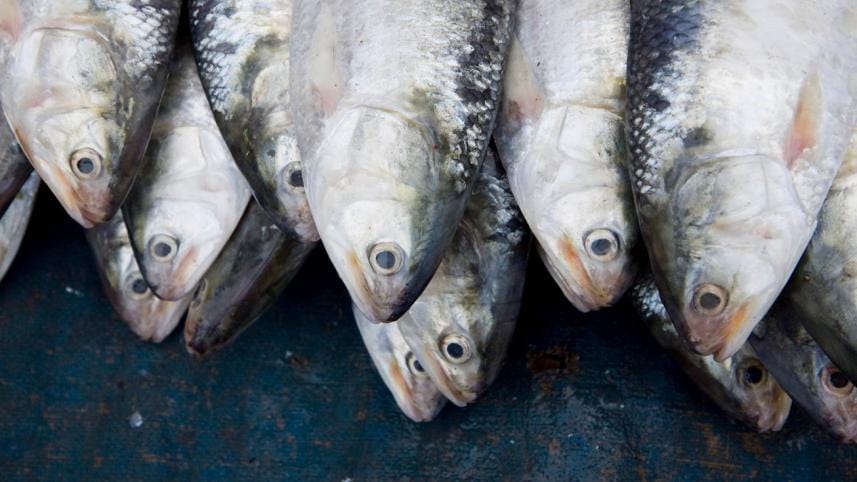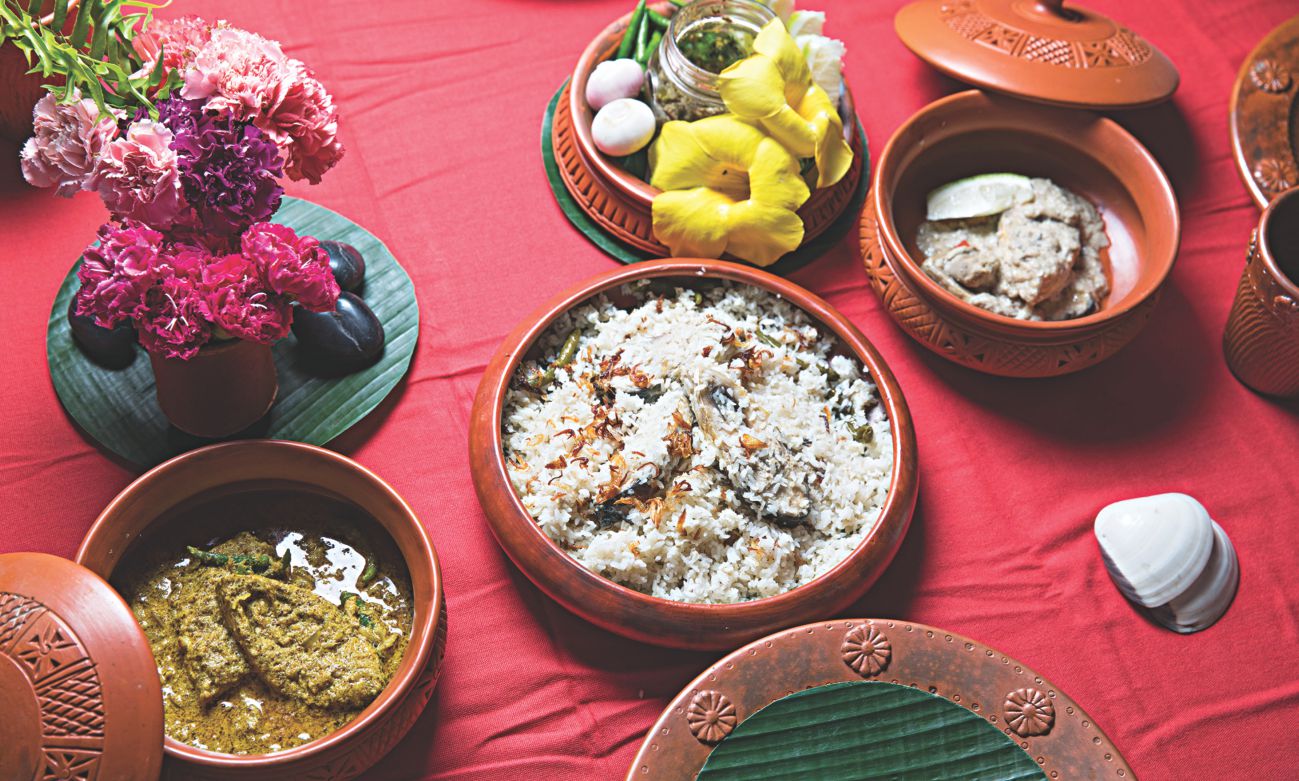The health benefits of eating hilsa

Not only does it taste great, but hilsa is also a powerhouse of nutrition. A diet rich in hilsa fish has many health benefits and the fact that it's the season for hilsa gives us another reason to include it regularly in our diet.
A 100g of edible hilsa contains roughly 310 calories, 22g protein, and 19.5g fat. Polyunsaturated omega-3 fatty acids, EPA and DHA obtained from fish oil are reported to have potential in curing coronary heart disease, stroke, hypertension, cardiac arrhythmias, diabetes rheumatoid arthritis, brain development, cancer, and depression. It also supplies the daily requirements of 27 percent of vitamin C, 2 percent of the iron, and an incredible 204 percent of calcium.
A high content of omega-3 fatty acids benefits the heart by decreasing triglycerides, lowering blood pressure, and reducing the chances of blood clotting. It is said that hilsa also boosts brain's power and have good control on insulin.
Vitamin A and omega-3 fatty acid of hilsa helps in eye health. Hilsa fish is good for the health of the blood vessels. It contains omega-3 fatty acids called EPA and DHA. And that is why consuming Hilsa fish improves blood circulation in the body.
Hilsa contains vitamins A, D and E. Vitamin D is found in very few food sources. Vitamin A prevents night blindness and D protects children from rickets.
Hilsa is rich in minerals like iodine, selenium, zinc and potassium. Iodine keeps the thyroid gland healthy, helps to secrete the enzymes that can fight cancer.
The minerals in hilsa, especially phosphorus and calcium are important for maintaining bone health. Sodium, potassium, magnesium and iron are essential elements for normal body growth and mental development.
The omega-3 fats in hilsa fish help to keep the skin looking good. The protein contained in it is one of the components of collagen. This collagen helps to keep the skin flexible and reduces the impression of age.
Hilsa fish can be cooked in myriads ways. Hilsa can be cooked in very little oil since the fish itself is very oily. But we should keep in mind that, some people are allergic to hilsa and they should avoid consuming the fish.
The writer is the Chief Clinical Dietician & HOD, United Hospital Ltd. She is also the AGS, Bangladesh Nutrition & Dietetics Forum (BNDF).



 For all latest news, follow The Daily Star's Google News channel.
For all latest news, follow The Daily Star's Google News channel. 
Comments